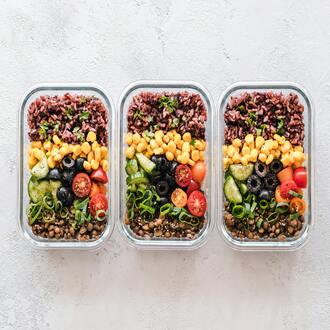Transcription The cyclic ketogenic diet (Ckd).
The cyclical ketogenic diet, known as the CKD (Cyclical Ketogenic Diet), is a variant of the ketogenic diet that has gained popularity among athletes and bodybuilders. Unlike the standard ketogenic diet (SKD) which maintains continuous carbohydrate restriction, the CKD involves alternating periods of ketosis with periods of increased carbohydrate intake.
In this session, we will explore in detail what the cyclical ketogenic diet is, how it is carried out, and what its benefits and considerations are.
Fundamental principles of the cyclic ketogenic diet
The CKD is based on the same premise as the standard ketogenic diet: reducing carbohydrate intake to induce ketosis and using fats as the primary source of energy. However, unlike the SKD, which maintains strict carbohydrate restriction throughout, the CKD alternates periods of ketosis with periods of increased carbohydrate intake.
Periods of carbohydrate loading and carbohydrate restriction in CKD
In CKD, carbohydrate loading periods are performed in which significantly higher carbohydrate intake is allowed, usually for one or two days a week. During these periods, carbohydrates are consumed in amounts that can range from 300 to 600 grams, which replenishes glycogen stores and provides additional energy for training and recovery.
After the carbohydrate loading period, a period of carbohydrate restriction follows, similar to SKD, during which carbohydrate intake is significantly reduced to re-induce ketosis. During these periods, carbohydrates are reduced to approximately 30-50 grams per day or even less, depending on individual tolerance.
Benefits of the cyclic ketogenic diet
The CKD has demonstrated specific benefits for athletes and bodybuilders who perform intense training or weightlifting. Periods of carbohydrate loading allow glycogen stores to be replenished, which can improve training performance and provide increased capacity for high-intensity exercise. In addition, CKD can help prevent fatigue and improve muscle recovery after exercise.
Considerations and Precautions
Although CKD may be beneficial for athletes and bodybuilders, it is not suitable for everyone following a ketogenic diet. Those who seek sustained weight loss or have specific ketosis goals may not benefit from CKD, as periods of carbohydrate loading may interfere with the overall ketosis state.
In addition, it is essential to carefully monitor the amount of carbohydrate consumed during loading periods so as not to exceed the limit that can bring the body out of ketosis.
Establishing a CKD eating plan
To successfully follow CKD, it is critical to carefully plan carbohydrate loading and restriction periods. It is helpful to keep track of macronutrient intake and use apps or online tools to calculate and monitor the amount of carbohydrates consumed during each phase. In addition, it is important to adjust the amount of carbohydrates according to individual needs and training goals.
Staying well hydrated is essential in CKD, especially during intense exercise and carbohydrate loading periods. In addition, those following a ketogenic diet may need to supplement with electrolytes, such as sodium, potassium and magnesium, to compensate for losses through the urine and prevent possible deficiencies.
ketogenic cyclic diet




